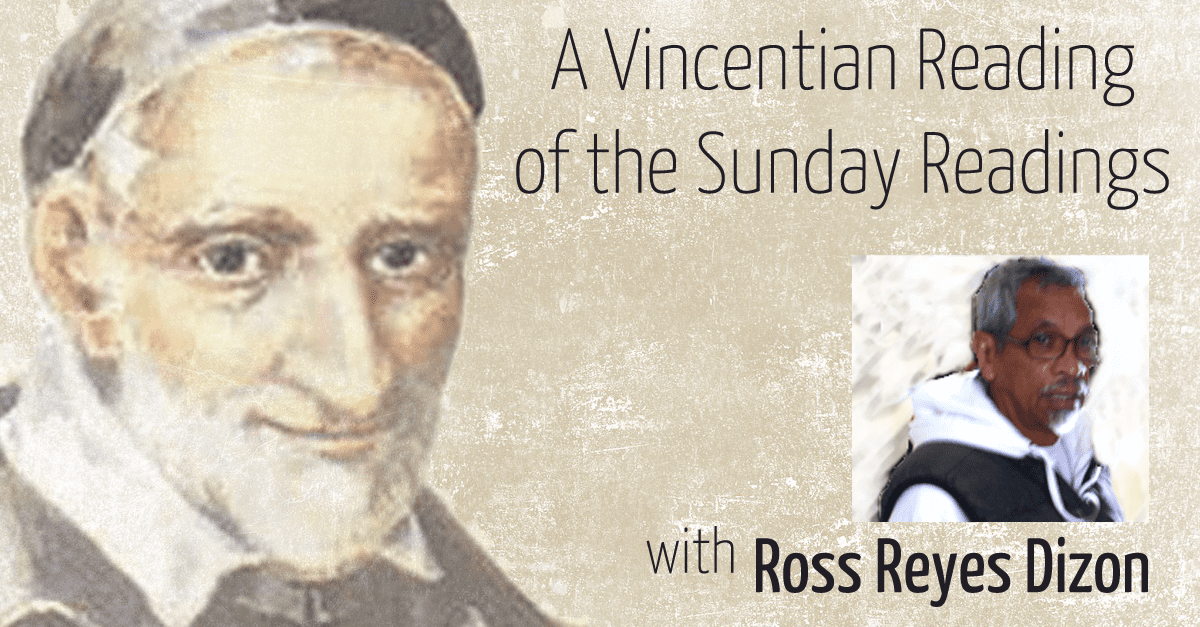Loaves and Fish of the Poor for the Poor
Jesus is the answer in full that the Father gives to our prayers. And we poor people ask him to give us this day our daily loaves of bread.
Jesus draws many people due to the signs he has performed for the sick. But he seems to draw more people after going up on the mountain. For those who are about to hold the Jewish Passover, which looks ahead to the crucifixion, come to him too. And seeing the large crowd, he asks Philip where they can buy enough loaves for them to eat.
He only tests Philip. Is the disciple on the same wavelength as the Teacher? Has the novice learned to think first of the others as the guide does? The latter does not look out for his own interests but for those of others.
Yes, Jesus took pity before on those who were like sheep with no shepherd. Now he worries about those who are flocking to him and thinks of the loaves for them.
And he puts the people’s needs ahead of his. That is why he does not mind that they do not give him and his followers the chance to eat. Nor will he mind later that he gives his body up and shed his blood so as to serve others to the full.
That is, indeed, how the Teacher is. And to let us know that he is so, he performs another sign, the sign of the loaves.
A meal of barley loaves and salted dried fish, not a banquet of rich food
More than five thousand folks sit on green meadow; the Good Shepherd prepares them a meal. He gets from a boy five barley loaves and two fish, the food of the poor.
Then, he gives thanks for this food; after all, it —all that we eat— comes from God. He gives it out, and all have their fill. And there are left-over pieces that are gathered; one should not waste God’s gifts.
Such sign amazes the crowd. Thinking maybe of the prophet Elisha, they take Jesus as the Prophet. But they want to make him king; they mistake him, then, for just one of a number of rulers.
No, the sign of the loaves does not point to the power that strikes fear into people’s hearts. Such power spellbinds those who, like the Magician, pass for the Almighty (Acts 8, 9-24). They think they can buy full power.
But no one buys Jesus’ power to feed the hungry. In fact, people with money show that they cannot relieve hunger. For more than money is needed; we need the oneness of brothers and sisters.
Such oneness, which the poor with true religion have (The Way of Vincent de Paul 59; SV.EN XI:190), is what the sign of the loaves means. It, of course, points to Jesus, for he embodies the oneness of brothers and sisters. Hence, we can only solve the problem of hunger if we are like Jesus and do as he.
No one of God’s children, —we all are—, should be left behind. Not even those whom the world considers throwable, since they are not a waste before God. We will lie, yes, if we proclaim one God, Father of all, and at the same time do not care for others’ suffering.
Lord Jesus, make us see things with the same eyes as you do (SV.EN XII:78). We shall thus be moved to share our loaves and to live what we celebrate in the Eucharist.
25 July 2021
17th Sunday in O.T. (B)
2 Kgs 4, 42-44; Eph 4, 1-6; Jn 6, 1-15







0 Comments